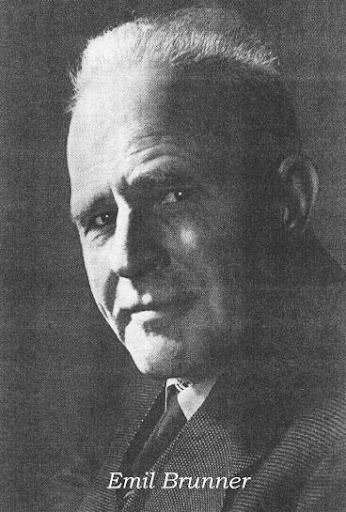 In 1935 Emil Brunner published a little book entitled Unser Glaube: Eine christliche Unterweisung, translated by John W. Rilling in 1936 into English as Our Faith. Just 123 pages, the booklet contains thirty-five brief meditations from ‘Is there a God?’ to ‘Life Eternal.’ Or perhaps the sections called be called sermonettes, for they have an easy, down-to-earth and relatable style. It seems to have won an audience: the English translation underwent continual reprint until at least 1965, the year before his death in 1966. Overshadowed throughout his life—and since then—by the towering figure of Karl Barth, Brunner was nonetheless a significant theologian in his own right. This little book reflects his deep concern to provide an accessible introduction to Christian faith for those outside the church, as well as initial instruction for those inside. As such, it is a work of apologetics and catechesis, a pastoral theology in service of Christian faith. Not only does the book provide an introduction to ‘our faith’ but also to the thought of Brunner himself.
In 1935 Emil Brunner published a little book entitled Unser Glaube: Eine christliche Unterweisung, translated by John W. Rilling in 1936 into English as Our Faith. Just 123 pages, the booklet contains thirty-five brief meditations from ‘Is there a God?’ to ‘Life Eternal.’ Or perhaps the sections called be called sermonettes, for they have an easy, down-to-earth and relatable style. It seems to have won an audience: the English translation underwent continual reprint until at least 1965, the year before his death in 1966. Overshadowed throughout his life—and since then—by the towering figure of Karl Barth, Brunner was nonetheless a significant theologian in his own right. This little book reflects his deep concern to provide an accessible introduction to Christian faith for those outside the church, as well as initial instruction for those inside. As such, it is a work of apologetics and catechesis, a pastoral theology in service of Christian faith. Not only does the book provide an introduction to ‘our faith’ but also to the thought of Brunner himself.
Brunner begins his little work with a foreword, the first words of which are:
“Man shall not live by bread alone, but by every Word that proceedeth out of the mouth of God.” That is no simile, but a literal law of life. There is a pernicious anaemia of the soul, a starvation of the soul as well as of the body. Humanity in our time suffers from chronic under-nourishment of its soul. … The Bible can nourish us only if it is understood and personally appropriated as God’s own Word. … The performance of this task, in my opinion, is the true service of theology—to think through the message of God’s work in Jesus Christ—think it through so long and so thoroughly that it can be spoken simply and intelligibly to every person in the language of their time (Brunner, Our Faith, 9).
In these words, we capture several of Brunner’s orienting convictions: the Bible is ‘God’s own word’ given for human nourishment. But it must be understood and personally appropriated as such. This is the true service of theology: not merely theoretical or metaphysical speculations, but the thoughtful exposition of this Word in light of and in reference to God’s work in Jesus Christ, that men and women might hear and understand this message.
But Brunner also has a broader horizon in view: as dark clouds gather over Europe and the east “many are beginning to listen to Truth which is not from man.”
The Word of God is the one thing which is able to unit East and West, the whole dismembered mankind, and to reshape it into one big family of nations. May it help in bringing to our consciousness that we are all called to one aim as we are all created by one Creator after His image (9-10).
The Word of God nourishes not merely a privatised faith or spirituality, but a vision for a world renewed. Christian faith has personal and devotional implications, yes; it is concerned also not merely with the self but with others, and indeed, all. It has missional and moral implications also. Our Faith is in God—Creator and Saviour of all.
Over the next little while I plan to give a brief precis of Brunner’s reflections on the faith, using his little book as a guide. If you’d like to read the book itself, it is helpfully published online chapter by chapter at Religion Online.